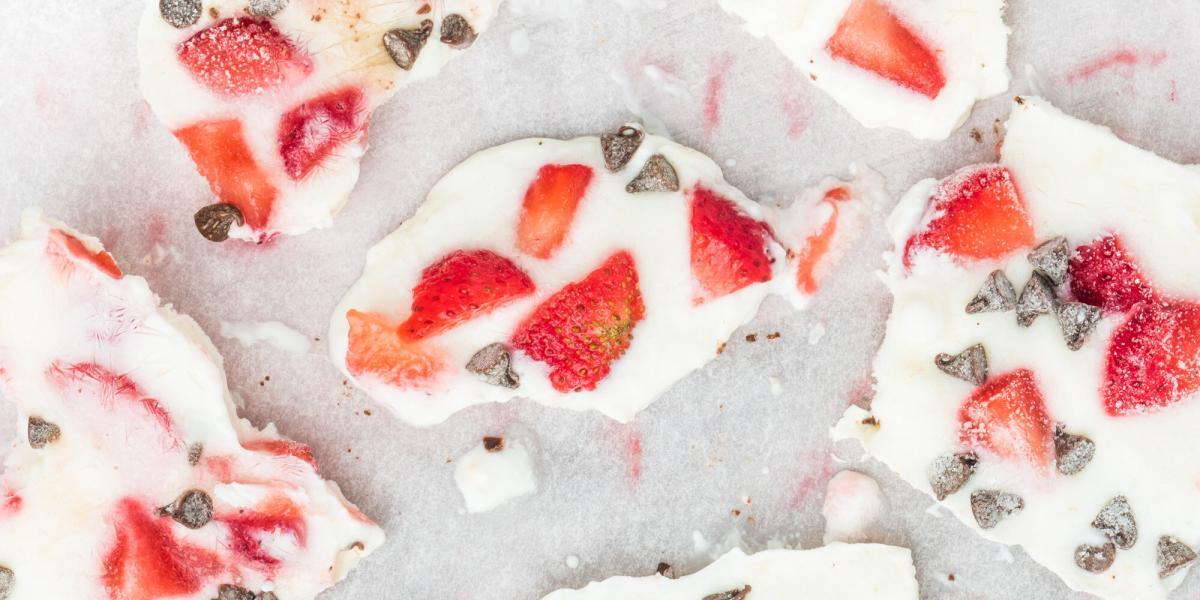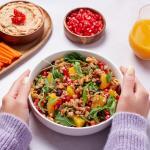Feeling peckish? If you’re reading this, then you probably are feeling peckish. But perhaps you want to find something healthier to satisfy your cravings, rather than the crisps, chocolate or cakes that you’re used to indulging in. If so, you’ve come to the right place, as we’ve put together a list of 3 healthy snacks to stop cravings.
But first, let’s explore the science behind snacking, why it occurs, and if there’s a way to reduce snacking or stop altogether.
Why do we snack?
Snacking, or eating between main meals, is a common habit that around 86% of adults do at home. Snacking happens for a number of reasons, including:
- Hunger – snacking to acquire satiety from food
- Boredom – snacking to pass time
- Availability – the snacks are accessible and readily available to consume
- Addiction – snacking to meet an addiction to a substance such as sugar
- Social pressure or culture – snacking to appease others, or because it has been socially normalised
- Procrastination – snacking to avoid doing something else
Although snacking is not inherently ‘bad’, it is often seen as a bad habit because of the foods that people choose to snack with, and how often they snack.
Often, it is easier to reach for a snack that is nutritionally poor (for example, highly processed, or high in sugar or saturated fats), because these snacks are conveniently packaged and provide a short term high. Therefore, snacking becomes a bad habit due to the intake of unhealthy food, leading to dietary imbalance and potential weight gain.
Snacking on a regular basis can have the same effect. However, while consuming an unhealthy snack every once in a while may not do much harm to your body, doing so regularly may have unwanted side effects.
The most popular snack foods in the UK (and their nutritional value)
Crisps
The most popular snack in the UK is crisps, with the average person purchasing 66g of crisps per week. A recent survey found Walker’s Cheese and Onion to be the favourite brand and flavour.
Each bag of Walker’s Cheese and Onion crisps is 96 calories, comprising 2.8g fat, 16g carbohydrates and 1.3g of protein. Crisps also contain a high amount of salt, the regular consumption of which can lead to increased blood pressure and a higher risk of heart disease.
Chocolate biscuits
A nation of biscuit dunkers, Brits love the snack that our American counterparts prefer to call a ‘cookie’. According to research, the average Brit will consume 8,316 chocolate biscuits in a lifetime (that’s a lot of dunking). Chocolate Digestives are, of course, the UK’s favourite choccy biccy.
One Chocolate Digestive is 84 calories, containing 4.1g fat, 11.3g carbohydrates and 1.2g protein. These biscuits contain high amounts of sugar. Consuming these amounts regularly will likely lead to weight gain and increases the risk of heart disease, diabetes and tooth decay.
Chocolate bars
60% of those in the UK that snack regularly (at least once per week) say that chocolate bars are their snack of choice. Cadbury Dairy Milk comes out on top as the nation’s favourite chocolate bar.
In one 45g bar of Dairy Milk, there are 240 calories, 14g fat, 26g carbohydrates and 3.4g protein. Out of all of the above snacks, this has the highest amount of calories, and therefore should be eaten in moderation.
The best healthy snacks to stop cravings
If you have developed a habit of snacking, you may find it tough to break out of this habit. However, instead of ceasing all snacking – which can lead to relapse – you could try replacing these snacks with healthier alternatives.
First, however, you should remove all unhealthy snacks from your home so that you are not tempted to snack, and avoid buying these as part of your regular shop. You could also let friends and family know that you are trying to eat healthier, so that they avoid offering you unhealthy treats. Removing temptation is the key!
Here are some healthy snacks to stop cravings, which you can try this week:
Yoghurt bark (makes 4 servings)
- 500g low fat Greek yoghurt
- 1 tbsp agave nectar
- 150g frozen raspberries
- 30g roughly chopped walnuts
- Line a baking tray with greaseproof paper, then spread the yoghurt onto the paper in an even layer.
- Distribute your toppings across the yoghurt, evenly spaced.
- Freeze for 2 hours.
- Once frozen, break up the yoghurt into snack-sized pieces. Store in a freezer bag or airtight container in the freezer for up to 3 months.
Low sugar date brownies (makes 16)
- 200g pitted dates, chopped
- 100g unsalted butter, softened
- 2 large eggs
- 1 tsp vanilla extract
- 75g self raising flour
- 75g cacao powder
- ½ tsp baking soda
- ¼ tsp salt
- Preheat the oven to 200C/180C Fan/Gas 6. Line a 20x20cm baking tray with greaseproof paper.
- Mix the butter, eggs and vanilla extract until light and fluffy. Combine the flour, cacao powder, baking soda and salt with the mixture. Stir in the dates.
- Pour the batter evenly into the baking tray. Bake for 20 minutes for gooey brownies, or 25 minutes for firmer brownies.
- Remove from the oven and allow to cool. Cut into 16 squares.
Chickpea bar snacks (makes 4 servings)
- 400g chickpeas, drained, rinsed and patted dry
- 2 tsp clarified butter, melted
- 1 tsp ground cumin
- 1 tsp paprika
- ½ tsp garlic powder
- ½ tsp fine salt
- ½ ground black pepper
- Preheat the oven to 220C/200C Fan/Gas 7. Line a roasting tray with greaseproof paper.
- Mix all of the ingredients together in a bowl, until the chickpeas are evenly covered in the butter and spices. Pour onto the roasting tray so that all of the chickpeas are on one layer.
- Bake for 30 minutes. Take the tray out midway through and shake to prevent the chickpeas from sticking to the paper, then return it to the oven.
- Remove from the oven and leave to cool. Store in an airtight container.
More tips to help you stop snacking
Worried that you might still struggle with snacking, even after trying out these healthy snack alternatives? Here are a few more tips:
- Avoid restricting your calorie intake too much
- Avoid skipping meals
- Eat foods with high protein and fibre content in order to stay satiated for longer
- Drink plenty of water throughout the day
- Keep your mind busy to avoid being distracted by the thought of snacking
- Track your food intake in a food diary (you don’t have to calorie count if this may negatively impact your mental health)
It may take a few weeks for you to get out of the habit of snacking; however, with willpower and determination, it will happen.
If you are still struggling to break the habit, you might consider other routes, such as requesting the help of a nutritionist, or seeing a therapist for cognitive behavioural therapy.






